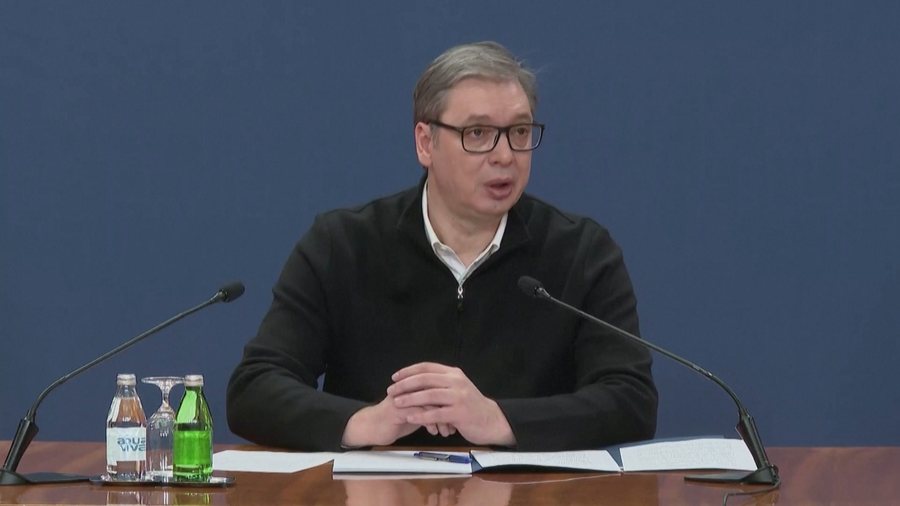
Serbian President Aleksandar Vučić said on Monday that the Serbian List scored a "great and important victory for Serbia" in the February 9 parliamentary elections in Kosovo, showing "the strong commitment of the Serbian people to preserving their homeland and relying on their Serbia."
"They [Serbs in Kosovo] have their own president, their own homeland, and they love that homeland, Serbia, more than anything in the world. I am infinitely grateful to them and they have shown how a people behaves responsibly and seriously in a difficult situation," Vučić said during an interview with Pink television.
Vučić said he "does not want" to speculate or "interfere in inter-Albanian relations", but that anyone who formed a government with Albin Kurti "would be politically dead".
With 99 percent of votes counted from the February 9 elections, the Serbian List - the largest Serb party in Kosovo, which enjoys absolute support from official Belgrade - secured 36,784 votes, or 4.43 percent.
Meanwhile, Nenad Rashiq's Party for Freedom, Justice and Survival received around 3,861 votes, or 0.46 percent.
Vučić added that the Serbian List "with all its weaknesses, shortcomings and mistakes, has managed to gain the greatest trust of Serbs" in Kosovo.
But, according to the current results, the Serbian List lost the support of almost 15,000 people, compared to the 2021 parliamentary elections.
Rasic, on the other hand, increased his support by around 2,000 votes.
Other political entities from the Serbian community, which participated in the February 9 elections, will not enter the Kosovo Assembly.
Aleksandar Arsenijevic's Serbian Democracy received around 1,700 votes, Branimir Stojanovic's Serbian People's Movement received around 1,405 votes, the Civic Initiative People's Justice received around 597 votes, and the Party of Kosovo Serbs received 348 votes.
Since its establishment in 2013, the Serbian List has won over 90 percent of the votes of the Serbian community in all elections in which it has participated, but the EU Monitoring Mission has pointed to “monopoly and pressures” from its officials.
In the last two years, this party has pursued a “boycott policy”, in line with its decision to withdraw from Kosovo's institutions in the north.
It is not yet clear whether, in the coming period, it will actively participate in Kosovo's institutions, or whether it will continue with boycott./ REL (A2 Televizion)











